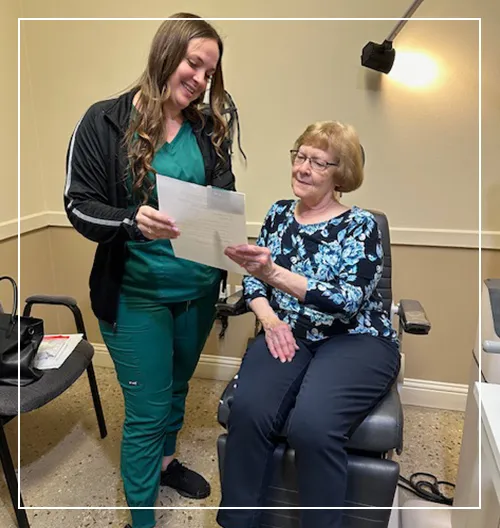Medical Management Of Glaucoma And Diabetic Retinopathy

Medical Management
Advanced Medical Management for Glaucoma and Diabetic Retinopathy
Treating eye diseases such as glaucoma and diabetic retinopathy while they are still in their early stages offers the best chance of successfully limiting eye damage and preventing loss of vision. Nicki Sayani, MD, and the expert ophthalmology team at North Texas Center for Sight in Denton, Texas, offers medical management of glaucoma and diabetic retinopathy to reduce symptoms and improve vision. To learn more about available treatment options, use the online scheduling tool or call the practice today.
What is Diabetic Eye Disease?
- Glaucoma
- Cataracts
- Diabetic retinopathy
The most common diabetic eye disease is diabetic retinopathy, a condition in which your retina is damaged due to high blood sugar levels. As your eye fluid leaks into your retina and obstructs blood flow, you may experience vision loss.
Left untreated, diabetic retinopathy causes blindness. Because there are often no symptoms of diabetic retinopathy until it becomes severe, you should schedule annual eye exams if you are diagnosed with diabetes.
How is diabetic retinopathy treated?
In the early stages of diabetic retinopathy, controlling your blood sugar is often enough to slow the progression of the disease. Medication management for diabetic retinopathy is an option in the early stages to help control blood sugar and hypertension.
Your doctor may recommend laser eye surgery for advanced diabetic retinopathy, to reduce your loss of vision.
What is glaucoma?
Glaucoma is the leading cause of blindness among older adults in the United States and a common eye disease for people with diabetes. Glaucoma is a disease of the eye’s optic nerve, the part of the eye that transmits images we see to our brains.
Damage to the optic nerve creates blind spots in our vision which go undetected until the nerve becomes severely damaged. If the entire optic nerve is destroyed, it can lead to blindness. Vision loss from glaucoma cannot be reversed, which is why it is so important to seek treatment before the disease advances to later stages.

How is glaucoma treated?
If you have been diagnosed with diabetes,
you need annual eye exams to monitor the health of your eyes in addition to treating the symptoms of diabetes and controlling your blood sugar. Call North Texas Center for Sight or use the online scheduling tool for an eye exam or to discuss treatment options for glaucoma or diabetic retinopathy.
